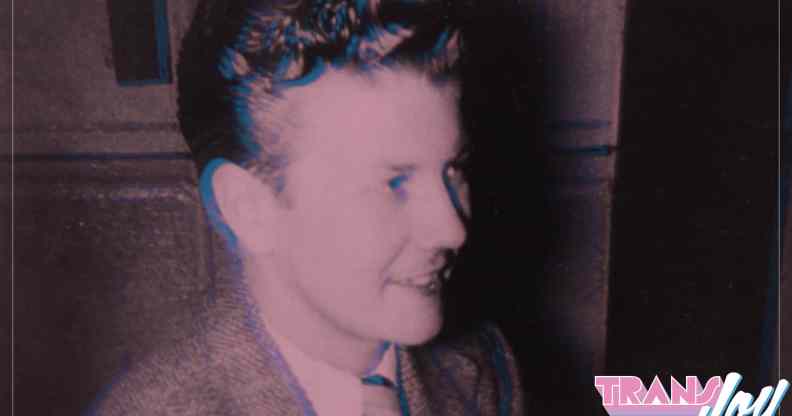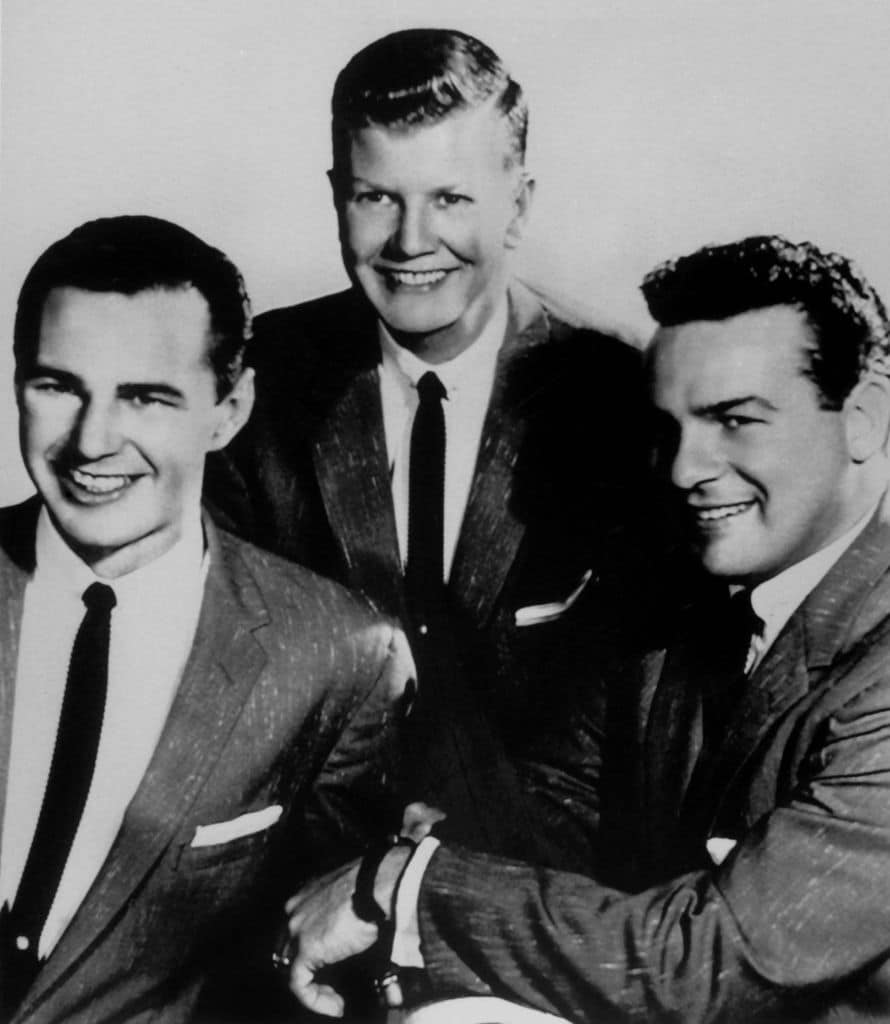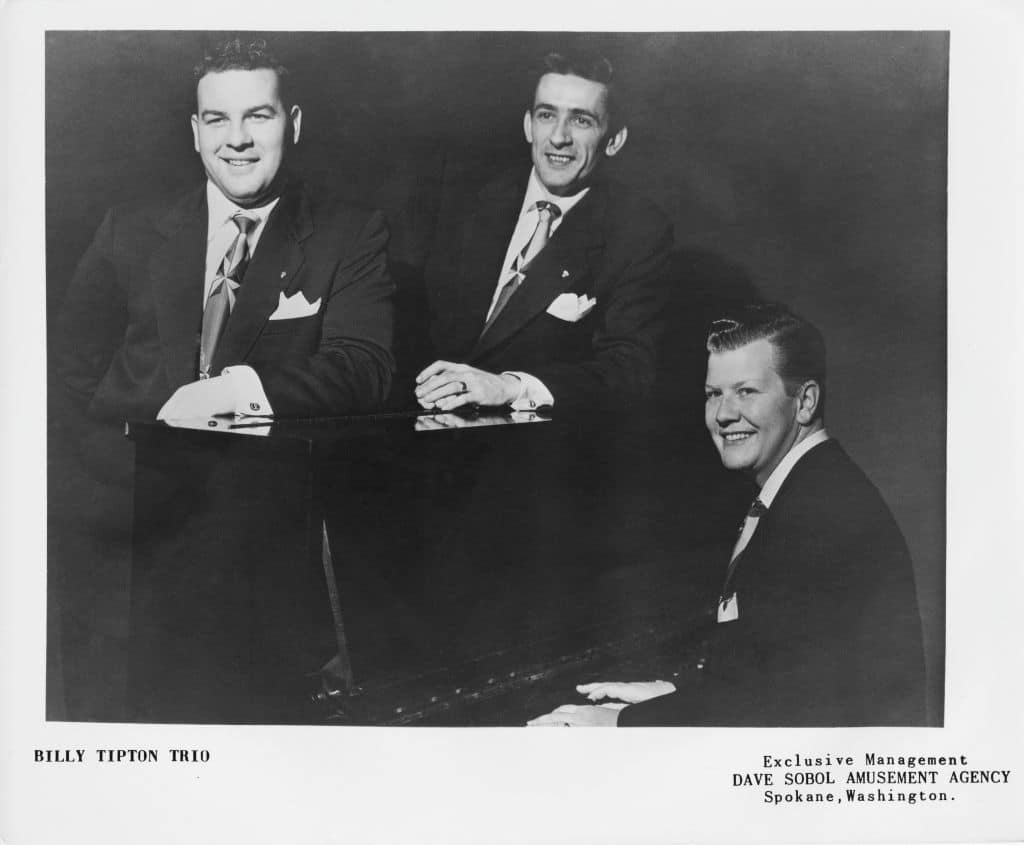Trans Joy: Film about a trans jazz legend shows the joy in discovering you’re not alone

Billy Tipton. (Supplied)
The first time we discover that we are not alone in our transness can be a powerful moment.
In a documentary about trans legend and celebrated jazz musician Billy Tipton, this moment of discovery becomes a thread of trans joy woven through his story.
The documentary No Ordinary Man examines the life and death of Billy Tipton: Jazz musician, devoted husband, loving father to three children, and a trans man – whose transness was only revealed, including to his closest friends and family, after he was outed when he died.
His story has been told before, by the cis biographer Diane Middlebrook in her 1995 book “Suits Me: The Double Life of Billy Tipton” – which set the narrative for Billy’s story through a cis lens. Middlebrook’s book came out six years after Billy’s death was a tabloid sensation, and she framed him as a liar who had deceived people into thinking he was a man in order to pursue his career as a jazz musician.
But Billy’s story was retold this year – and this time, trans filmmakers and actors took the lead. Discovering the life of Billy Tipton through interviews with legendary trans historians and authors including Susan Stryker, Kate Bornstein, Zackary Drucker, Thomas Page McBee, C Riley Snorton, Jamison Green and Amos Mac, the documentary shows a group of trans masculine actors auditioning to play the role of Billy.
As the auditions unfold, we learn about each actors personal relationship with the trans legend.
‘Billy Tipton was the first time I encountered trans masculinity’
During the documentary, we learn about each time the trans cast and crew came across Billy Tipton, and the first time each of them saw trans masculinity represented in someone other than themselves.
“I know about Billy Tipton because I listen to Bikini Kill, and they shout out Billy Tipton in a long list of important people in queer history in a song,” says a voice at the beginning of the documentary, No Ordinary Man .
Another voice, that of trans musician Ryan Cassata, says he didn’t know who Billy was and he feels guilty, because he was a “trans legend”.
Later in the film, trans actor Marquise Vilsón – who we see in the documentary alongside other trans masculine actors auditioning for the role of Billy – is asked what he thought when he was first invited to be part of the film. “Who are these crazy people!” he says.
Marquise then explains: “I thought it was really cool though. I thought it was amazing that someone was taking an interest in trans masculine history. In our story, and in someone like Billy.”
And he goes on: “Of course, I thought it was a little odd – because clearly I am not white – coming in to read for a part like Billy Tipton but, then again, at the same time, I think the casting process looks like as many different versions and variations of transness walking into a casting directors office.
There are so few accounts of us having access to history that belongs to us.
“There are so few accounts of us having access to history that belongs to us, that is being created by us, that is being curated by us, that allows our voice and our vision to be a part of the process.”

The Billy Tipton Trio (Billy in center) pose for a publicity shot jn Spokane, Washington, USA, circa 1960. (Michael Ochs Archives/Getty)
During the auditions to play Billy, one scene sticks out. It’s when Billy meets Buck Thomason, a programmer at a local radio station. Billy and Buck read each other immediately, and Billy asks Buck for tips on making his voice deeper. Buck shows him how to speak “from the guts”, and in return asks Billy how he can be more of a gentleman, after learning Billy is married.
As the different trans masc actors auditioned with this scene, we can see their own realisation that they, too, have had a moment of recognition like this. One of them tells the casting director: “You’re looking for someone who exists like you, so you’re not alone.”
He walks in and he feels like he’s the only person in the world who’s like him.
Another actor said of this scene: “He walks in and he feels like he’s the only person in the world who’s like him, and you know, I’ve had that moment…
“He saw himself [in Buck], and he got to have a life, and he was a little bit more open than he probably would have been.”
Scott Turner Schofield, another of the trans men auditioning, remembers how coming across Billy changed his life.
“When I encountered Billy Tipton that was the first time I encountered trans masculinity,” Scott says. “I encountered a trans man who was living a life that I could see for myself. He didn’t consent to that visibility, which sucks, but I’m grateful.”
The feeling that Billy’s outing was a disgrace but also something that helped generations of trans men after him is also a sentiment shared by co-director Chase Joynt. As he says in No Ordinary Man: “We are learning how to tell our own stories. Trans men have not existed in the cultural imagination, at all really, and so the idea of having this process of looking back and figuring out what our lineage is…
“But to be fair to Billy, we wouldn’t even know who he was if the tabloids hadn’t made him into a story.”
Billy Tipton was outed after his death

The Billy Tipton Trio (Billy at right) poses for a publicity shot circa 1955 in Spokane, Washington. (Michael Ochs Archives/Getty)
Born in 1914 in Oklahoma City, Billy started playing piano and saxophone in high school and by his late teens was playing professional gigs. During the course of his career as a well-known and even celebrated jazz musician, Billy played across the US, and eventually, in the 1950’s, formed the Billy Tipton Trio, which went on to release two records.
Everyone in Billy’s life knew him as a man, but when he died in 1989, he was outed by a paramedic who tried to save him.
The story of the famous jazz musician became sensationalised into one of a secret, with the tabloid press turning Billy’s personal life into a story of deceit. His wife and son, Billy Tipton Jr, appeared on talk shows – including Oprah’s – where they were asked invasive and dehumanising questions about Billy’s genitals and sex life, and the question repeatedly returned to was, How did you not know?
‘Billy was a man, in every sense of the word’
In the media frenzy that followed the outing of Billy Tipton, his wife and son, Billy Tipton Jr, were repeatedly questioned about whether they’d known he was trans.
In the film we see on one talk show his wife, Kathleen ‘Kitty’ Tipton Oakes, patiently explaining that her late husband “was a man, in every sense of the word”.
“He will always be a man,” Kathleen continued. “Nothing more than a man.”
Her son, Billy Tipton Jr, says in No Ordinary Man that he “has not anger about anything that happened, because I understand that his love of something is why he did what he did”.
As co-director Aisling Chin-Yee told PinkNews in an interview earlier this year, the time that the documentary crew spent with Billy Tipton Jr was rewarding in and of itself.
We made a film about somebody who really just lived a very, very successful life.
“Over the few days that we spent with him, it became clear that he didn’t know that there was a community that his father was a legend and an icon in,” Chin-Yee said. “He hadn’t had that kind of exposure.”
“[Billy Tipton] wanted to be a good person, he wanted to be a good father, he wanted to be a good husband, and he wanted to be a good friend,” Chin-Yee added.
“Biopics aren’t made about regular people, so there was something very amazing to do that. And of course there’s part of the story that, because he’s trans, makes him exceptional in a certain regard. But we made a film about somebody who really just lived a very, very successful life in its own modesty.”

